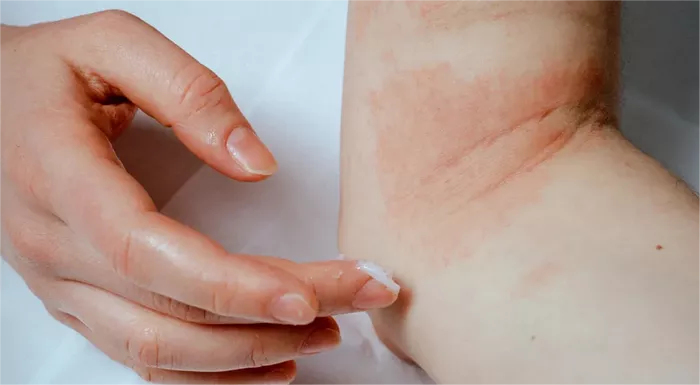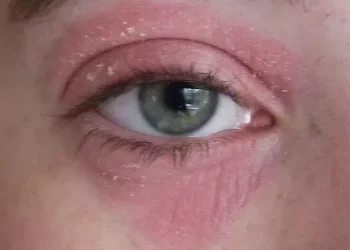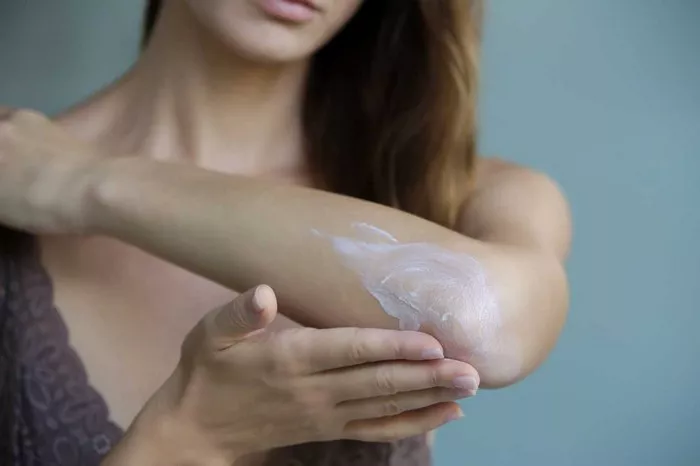Dyshidrotic eczema is a skin condition that causes small, itchy blisters to form on the hands and feet. The blisters often cause discomfort and can lead to skin peeling or cracking, which may result in further irritation or infection. While the exact cause of dyshidrotic eczema is not fully understood, certain triggers can worsen the condition. Thankfully, there are ways to manage and prevent dyshidrotic eczema flare-ups. This article will explore some of the most effective prevention strategies that can help you avoid this uncomfortable condition.
Understand the Causes and Triggers of Dyshidrotic Eczema
To prevent dyshidrotic eczema, it’s crucial to understand the potential causes and triggers. Although the exact reason why dyshidrotic eczema occurs remains unclear, it is often linked to various factors that irritate the skin or provoke the immune system. Some of the most common triggers include:
Stress: Emotional or physical stress is a well-known trigger for dyshidrotic eczema flare-ups. The body’s stress response can weaken the immune system and make the skin more susceptible to irritation.
Allergies: Allergic reactions to certain substances, including food, pollen, or environmental factors, can increase the likelihood of an eczema flare-up. Common allergens include nickel, which is found in jewelry, as well as harsh soaps and detergents.
Sweating: Excessive sweating, particularly during hot weather or intense physical activity, can cause irritation and lead to blisters in individuals with dyshidrotic eczema.
Humidity: Both dry and overly humid conditions can negatively affect your skin. Dry air can lead to cracked skin, while high humidity can trap sweat against your skin, promoting flare-ups.
Contact with Irritants: Frequent exposure to irritants such as soaps, detergents, harsh chemicals, or certain fabrics can weaken the skin’s protective barrier, leading to eczema flare-ups.
Maintain a Healthy Skin Care Routine
Taking care of your skin is one of the best ways to prevent dyshidrotic eczema. By keeping your skin clean, moisturized, and protected, you can reduce the likelihood of flare-ups.
Cleanse Gently: Use a mild, fragrance-free soap or body wash to clean your skin. Harsh soaps can strip the skin of its natural oils and lead to dryness or irritation, which can trigger eczema flare-ups.
Moisturize Regularly: Apply a thick, fragrance-free moisturizer to your skin immediately after bathing. Moisturizing helps to lock in moisture and repair the skin’s barrier, preventing it from drying out. Look for products that contain ingredients like ceramides, glycerin, or hyaluronic acid.
Avoid Hot Water: Hot water can dry out the skin and strip it of essential oils. Opt for lukewarm water when showering or washing your hands.
Use Hypoallergenic Products: Choose skincare products and cosmetics that are labeled hypoallergenic and free from fragrances, dyes, or alcohol, as these can cause irritation or allergic reactions.
Protect Your Hands and Feet
Since dyshidrotic eczema often affects the hands and feet, it’s important to take steps to protect these areas from potential triggers.
Wear Gloves: If you are handling harsh cleaning products, detergents, or other chemicals, always wear protective gloves. This will prevent the skin on your hands from coming into direct contact with irritating substances.
Avoid Prolonged Wetness: Soaking your hands or feet in water for long periods can dry out the skin and lead to eczema flare-ups. After washing your hands, dry them gently and apply moisturizer right away.
Wear Comfortable Shoes and Socks: Tight shoes or socks made of synthetic materials can trap moisture, causing sweating and irritation. Opt for breathable shoes and moisture-wicking socks made of cotton or wool.
Keep Hands Dry: Try to keep your hands dry, especially during humid weather or after sweating. Carrying a small towel or handkerchief can help you keep moisture at bay throughout the day.
Manage Stress Effectively
Since stress is a common trigger for dyshidrotic eczema, finding ways to manage stress can significantly reduce the likelihood of flare-ups. Incorporating stress-reduction techniques into your daily routine can be beneficial for both your overall well-being and your skin health.
Practice Relaxation Techniques: Deep breathing exercises, meditation, or mindfulness can help to relax the mind and reduce stress. These practices can also help you develop healthier coping mechanisms for managing anxiety.
Exercise Regularly: Physical activity is an excellent way to reduce stress. Exercise releases endorphins, which are natural mood boosters. Choose low-impact activities like walking, swimming, or yoga to keep your stress levels in check.
Get Enough Sleep: Sleep is essential for both your physical and mental health. Lack of sleep can exacerbate stress and make eczema flare-ups more likely. Aim for 7-9 hours of quality sleep each night.
Consider Therapy: If you find that stress is significantly affecting your life, speaking with a therapist or counselor can help you work through underlying issues and develop effective coping strategies.
Avoid Known Allergens
If you have allergies, avoiding known triggers is essential to preventing dyshidrotic eczema. Common allergens that can provoke eczema flare-ups include:
Nickel: Nickel is a common allergen found in jewelry, watches, and other metal items. If you are allergic to nickel, avoid wearing jewelry made from this metal, and be cautious when using products that contain nickel, such as certain medications or food items.
Fragrances and Dyes: Many skincare products, soaps, shampoos, and detergents contain fragrances or artificial dyes that can irritate sensitive skin. Choose fragrance-free products whenever possible.
Food Allergens: Certain foods, such as eggs, dairy, and nuts, can trigger allergic reactions in some individuals. If you suspect a particular food is causing flare-ups, consider keeping a food diary and speaking to an allergist about potential food sensitivities.
Be Mindful of Your Environment
Your environment plays a big role in your skin’s health. Several environmental factors can trigger or worsen dyshidrotic eczema, so it’s important to create a living space that is conducive to healthy skin.
Keep Humidity in Check: Both excessive humidity and dry air can affect your skin. Use a humidifier in the winter to prevent the air from becoming too dry, and ensure good ventilation in damp areas like bathrooms to prevent mold growth. Try to keep the humidity level in your home between 40-60%.
Avoid Direct Sun Exposure: While some sun exposure can be beneficial for skin health, excessive exposure can damage the skin and trigger eczema flare-ups. Wear sunscreen with at least SPF 30 when going outside, and seek shade during peak sun hours (10 a.m. to 4 p.m.).
Create an Allergy-Free Home: Dust, mold, and pet dander are common allergens that can affect the skin. Regularly clean your home to reduce allergens. Vacuum carpets frequently, wash bedding regularly, and keep windows closed during allergy season.
Stay Hydrated
Proper hydration is essential for maintaining healthy skin. Drinking plenty of water helps to keep your skin moisturized from the inside out and may prevent dryness, which can trigger eczema flare-ups. Aim for at least 8 glasses of water a day, and more if you are physically active or in a hot climate.
Seek Medical Advice
If you have frequent or severe dyshidrotic eczema flare-ups, it’s important to see a healthcare professional, such as a dermatologist. They can help diagnose the condition, rule out other potential skin issues, and recommend treatment options to manage your eczema. In some cases, prescription creams or medications may be needed to control symptoms.
Conclusion
Dyshidrotic eczema can be challenging to deal with, but with proper prevention and care, flare-ups can often be minimized. By understanding your triggers, maintaining a consistent skincare routine, and managing stress effectively, you can reduce the risk of developing eczema. It’s also important to protect your hands and feet, avoid allergens, and keep your environment skin-friendly. If needed, consult with a healthcare provider to develop a personalized treatment plan. By taking proactive steps, you can maintain healthy, comfortable skin and reduce the impact of dyshidrotic eczema on your daily life.
Related topics:

























